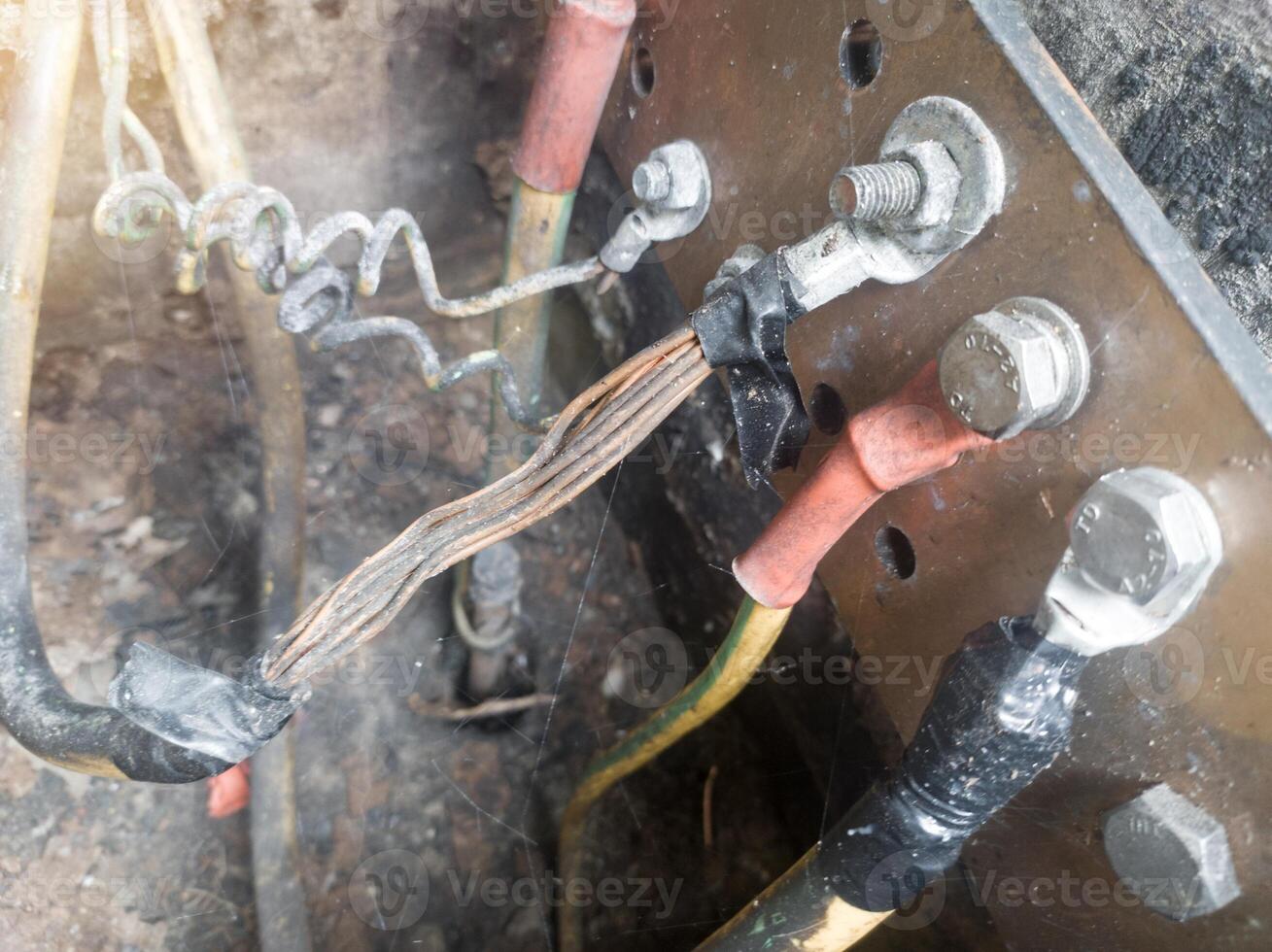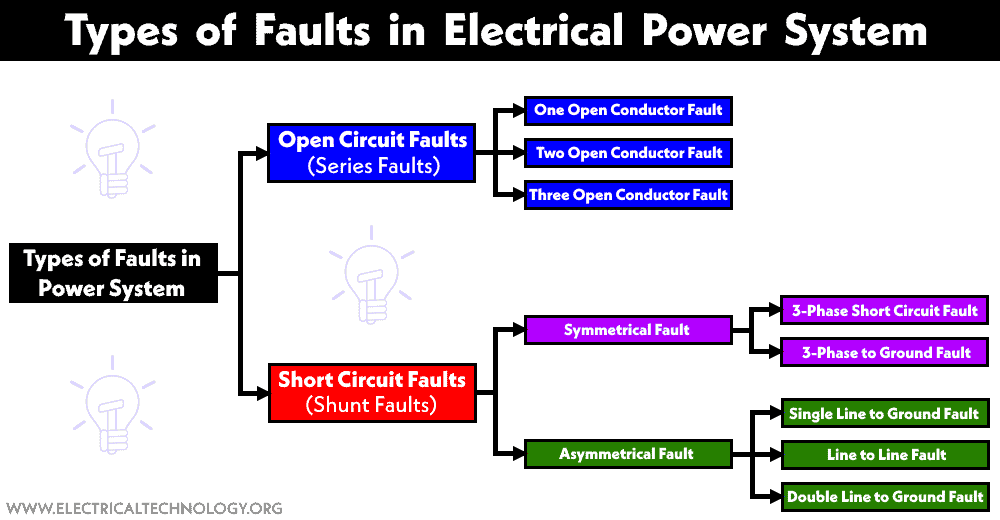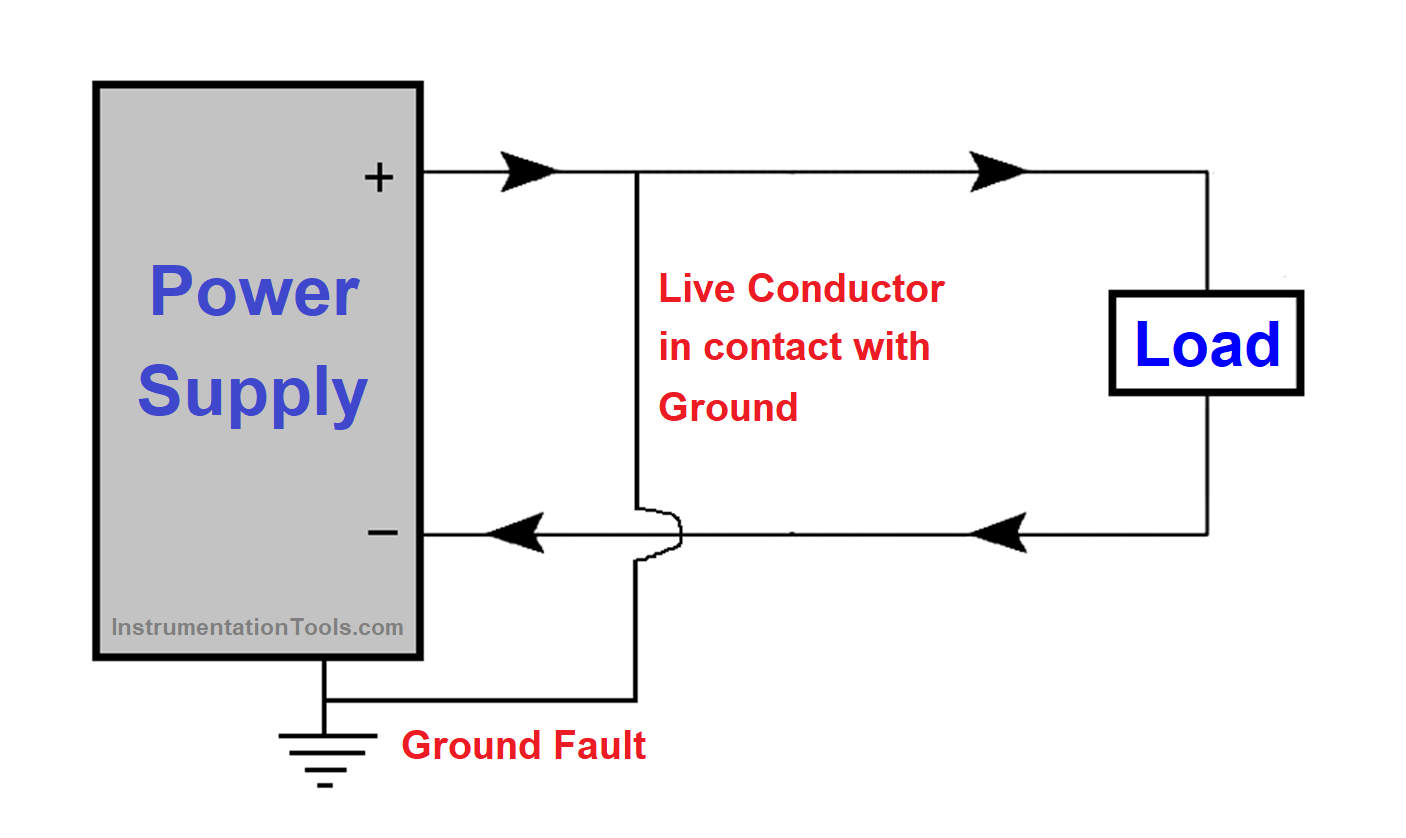Who Else Wants Info About What Causes A Ground Fault

What on Earth is a Ground Fault? Let's Break it Down!
1. Understanding the Basics
Okay, so you've probably heard the term "ground fault" tossed around, maybe after a slightly dramatic incident involving a tripped circuit breaker. But what is it, really? Well, imagine electricity as water flowing through pipes (wires). It's supposed to follow a specific path, right? A ground fault happens when that electrical "water" decides to take a detour — a shortcut to ground. Think of it as an electrical escape route, usually unintended and potentially dangerous.
Essentially, it's an unintended electrical path between a live conductor and ground, or a grounded metal part of an appliance or electrical system. This detour is usually a low-resistance path, meaning a whole lot of current can suddenly decide to take it. And that's where the trouble begins, leading to potential shocks, burns, and even fires. Not exactly a picnic.
Think of your home's wiring as a carefully planned system. Electricity is supposed to flow from the power source, through your appliances and lights, and then back to the source in a controlled loop. A ground fault disrupts this loop, sending current where it shouldn't be. And, trust me, electricity misbehaving is rarely a good thing.
So, while it might sound complicated, the core idea is quite simple: electricity going where it isn't supposed to, causing a potentially hazardous situation. Now, let's dig into the reasons why these electrical detours happen in the first place.

What Is A Ground Fault On Fire Alarm System At Patrick Ruppert Blog
The Culprits Behind the Electrical Chaos
2. Insulation Breakdown
One of the most common reasons for a ground fault is good old insulation failure. Wires are covered in insulation to keep the electricity safely contained within the conductor. Over time, this insulation can degrade due to heat, age, physical damage, or even just plain wear and tear. When the insulation breaks down, it creates a path for electricity to leak out and find its way to ground. Think of it like a crack in a water pipe, letting water spray everywhere.
Imagine a wire rubbing against a sharp metal edge inside an appliance. Gradually, that edge wears away the insulation, exposing the bare wire. Now, if that bare wire touches the metal casing of the appliance, boom! You've got a ground fault waiting to happen. Regular inspection of cords and wiring, especially in high-use areas, can help prevent this.
Harsh environments can also accelerate insulation breakdown. Think of damp basements, hot attics, or areas exposed to corrosive chemicals. These conditions can weaken the insulation, making it more susceptible to damage. Protecting your wiring from these environmental stressors is key to preventing ground faults.
Even something as simple as a nail or screw accidentally piercing a wire behind a wall can cause a ground fault. That's why it's so important to be cautious when hanging pictures or doing any kind of DIY electrical work. Always know what's behind the wall before you start hammering!
3. Moisture
Water and electricity are a famously bad combination. Moisture can act as a conductor, creating a path for electricity to flow where it shouldn't. If water gets into an electrical outlet, junction box, or appliance, it can create a ground fault. This is why bathrooms and kitchens, where moisture is prevalent, are often equipped with Ground Fault Circuit Interrupters (GFCIs) — more on those later.
Think about that leaky faucet dripping onto the wiring underneath your sink. Over time, that water can seep into the insulation, creating a path for electricity to reach the grounded metal pipes. Suddenly, touching the sink could become a shocking experience! It is a very unpleasant experience.
Rainwater seeping into outdoor electrical boxes or underground wiring can also cause ground faults. That's why it's so important to use weatherproof enclosures for all outdoor electrical connections. It is important that they are installed correctly.
Condensation can also be a culprit, especially in humid environments. When warm, moist air comes into contact with cooler surfaces, condensation forms, creating a film of water that can conduct electricity. Properly ventilating electrical enclosures can help prevent this.
4. Damaged Equipment
Faulty appliances, frayed cords, and broken electrical components can all contribute to ground faults. If an appliance's internal wiring is damaged, it can create a path for electricity to leak out to the metal casing. Similarly, a frayed cord can expose bare wires, creating a shock hazard. Always inspect your electrical equipment regularly for signs of damage.
Imagine a blender with a cracked housing. If the internal wiring comes into contact with that crack, the metal parts of the blender could become energized. Touching the blender could then result in a nasty shock. It is best to replace appliances when you spot the damage.
Over time, electrical components inside appliances can simply wear out. This can lead to insulation breakdown, loose connections, and other issues that can cause ground faults. Regular maintenance and occasional replacement of older appliances can help prevent these problems.
Even something as simple as a loose wire connection inside an electrical panel can create a ground fault. If a wire comes loose and touches the metal enclosure, it can energize the entire panel, creating a serious hazard. This is why it's important to have a qualified electrician inspect your electrical panel periodically.

Ground Fault Circuit Interrupters (GFCIs)
5. How They Work and Why You Need Them
Thankfully, we have GFCIs to protect us from the dangers of ground faults. A GFCI is a special type of circuit breaker that constantly monitors the current flowing in a circuit. If it detects even a tiny imbalance — indicating that some current is leaking to ground — it instantly trips the circuit, cutting off the power before a shock can occur. Think of it as an electrical bodyguard, always on the lookout for danger.
GFCIs are particularly important in areas where water is present, such as bathrooms, kitchens, and outdoor locations. They're designed to react incredibly quickly — typically within milliseconds — which is fast enough to prevent serious injury from an electrical shock. Without a GFCI, even a small ground fault could deliver a potentially lethal shock.
Testing your GFCIs regularly is crucial to ensure they're working properly. Most GFCIs have a "test" button that you can press to simulate a ground fault. If the GFCI trips when you press the button, it's working as expected. If it doesn't trip, it needs to be replaced immediately. It is best to consult with the professional if the GFCI needs to be replaced.
While GFCIs are incredibly effective at preventing electrical shocks, they don't prevent ground faults from occurring in the first place. They simply protect you from the consequences. Addressing the underlying cause of the ground fault is still essential to ensure the safety of your electrical system.

Types Of Faults In Electrical Power System Causes & Effects
Preventing Ground Faults
6. Tips for a Safer Electrical System
The best way to deal with ground faults is to prevent them from happening in the first place. Regular inspection of your wiring, appliances, and electrical equipment can help you identify potential problems before they become hazards. Look for frayed cords, cracked insulation, loose connections, and other signs of damage. Don't ignore these warning signs — address them promptly.
Proper grounding is also essential for preventing ground faults. Make sure your electrical system is properly grounded according to local electrical codes. This provides a safe path for fault current to flow back to the source, tripping the circuit breaker and preventing a shock hazard. It can avoid electrical shocks.
Protecting your wiring from moisture is another key step in preventing ground faults. Use weatherproof enclosures for all outdoor electrical connections, and address any leaks or sources of moisture that could potentially come into contact with your wiring. It is better to keep everything safe.
When doing any kind of electrical work, always turn off the power at the circuit breaker first. This is a basic safety precaution that can prevent serious injury. And if you're not comfortable doing electrical work yourself, always hire a qualified electrician. Electrical work is not a DIY project for the faint of heart!

When to Call in the Pros
7. Recognizing a Serious Electrical Issue
While some electrical issues can be handled with a bit of DIY know-how, others require the expertise of a qualified electrician. If you're experiencing frequent ground faults, or if you notice any signs of serious electrical problems — such as burning smells, sparking outlets, or buzzing sounds — it's time to call in the pros. Don't try to diagnose or fix these problems yourself; it's simply not worth the risk.
An electrician can thoroughly inspect your electrical system, identify the source of the ground fault, and make the necessary repairs. They can also ensure that your system is properly grounded and meets all applicable safety codes. Electrical work is complex and potentially dangerous, so it's always best to err on the side of caution.
Think of it this way: you wouldn't try to perform surgery on yourself, would you? Electrical work is similar — it requires specialized knowledge, tools, and training. A qualified electrician has all of these things, allowing them to safely and effectively address your electrical issues.
So, if you're ever in doubt about whether you can handle an electrical problem yourself, don't hesitate to call a professional. It's better to be safe than sorry when it comes to electricity.

Managing Ground Faults ASCO Power Technologies
FAQ
8. Your Burning Questions Answered
Let's tackle some common questions people have about ground faults.
Q: What's the difference between a ground fault and a short circuit?
A: Good question! A short circuit is a low-resistance connection between two hot wires or a hot wire and a neutral wire. A ground fault, on the other hand, is a low-resistance connection between a hot wire and ground. Both are dangerous, but they happen for different reasons.
Q: Will a regular circuit breaker protect me from a ground fault?
A: Not always. Regular circuit breakers are designed to protect against overloads and short circuits, but they may not react quickly enough to prevent injury from a ground fault. That's where GFCIs come in; they're specifically designed to detect and interrupt ground faults.
Q: My GFCI keeps tripping. What should I do?
A: If your GFCI trips frequently, it's a sign that there's a ground fault somewhere in the circuit. Try resetting the GFCI. If it trips again shortly after, disconnect any appliances that are plugged into that circuit. If the GFCI still trips with nothing plugged in, it's likely a wiring issue that requires the attention of an electrician.